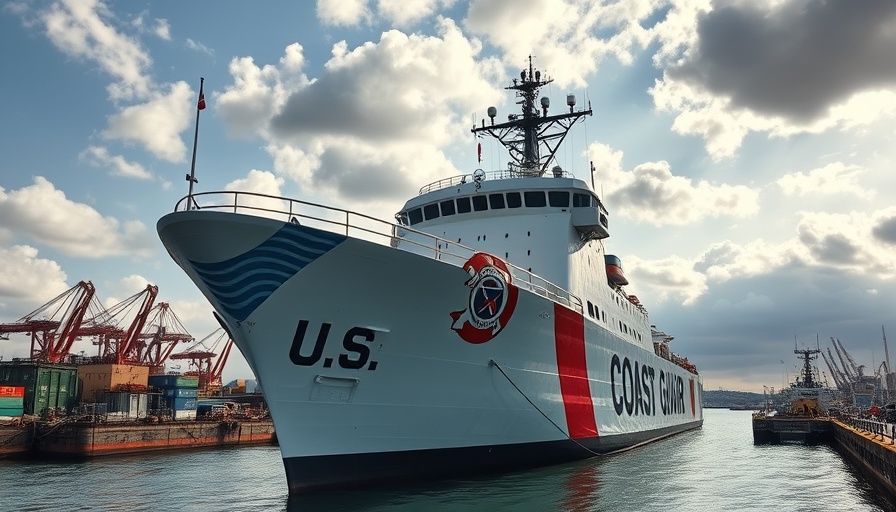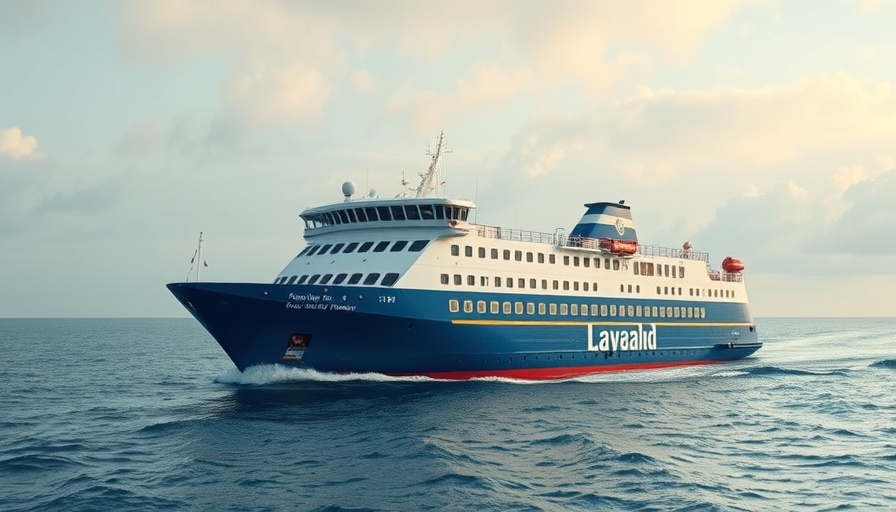
Why the U.S. Coast Guard is Changing Shipbuilders
In a significant move marking a shift in governmental contract oversight, the U.S. Department of Homeland Security has partially terminated its shipbuilding contract with Eastern Shipbuilding Group (ESG). This decision underscores a commitment to alleviate wasteful spending of taxpayer dollars and ensure that critical maritime security projects do not falter due to inefficiency.
Analyzing Delays: A Wake-Up Call for Accountability
The recent announcement regarding the delay of the Offshore Patrol Cutter (OPC) contract is a cautionary tale for all stakeholders involved in federal contracts. Originally, the delivery of the first OPC was scheduled for June 2023, but delays have now pushed this deadline back to late 2026. The Coast Guard’s oversight is part of a larger initiative to re-evaluate contracts that do not meet delivery obligations. With ESG missing deadlines repeatedly—most notably the deadline for OPC 2 in April 2024—the need for stringent accountability measures is clear.
Broader Implications for Naval Contracting
This incident raises questions not just about ESG’s ability to deliver but also about the broader implications for naval contracting in the U.S. The reliance on government contracts for shipbuilding has historically tied the fates of various sectors to the efficiency and accountability of these manufacturers. “We cannot allow critical shipbuilding projects to languish over budget and behind schedule,” remarked a senior Homeland Security official, highlighting the administration's intention to optimize resource allocation and keep the Coast Guard equipped with modern vessels.
Agility in Maritime Security: Meeting National Demands
The commitment to procure 25 OPCs remains a crucial objective for the Coast Guard, reflecting a broader strategy of enhanced maritime security. These vessels are designed to complement existing naval capabilities, such as National Security Cutters and Fast Response Cutters, and are pivotal in missions including counter-drug operations and migrant interdiction. Such vessels form part of a layered security strategy essential to national interests, particularly along the southeast border.
Potential Benefits of Resource Redistribution
The partial termination of the contract may appear to be a setback for ESG, but it opens avenues for other shipbuilders who may be better positioned to meet contractual obligations. This redistribution of resources could strengthen U.S. shipbuilding infrastructure by drawing in competent firms that can deliver on time and ensure that taxpayer dollars maintain their intended purpose—safeguarding national security.
What’s Next for Eastern Shipbuilding?
A critical question remains: What implications does this partial termination have for Eastern Shipbuilding Group? The company, although facing setbacks, may still pivot and re-align its strategies to improve operational efficiencies and regain the Coast Guard’s trust. However, ESG must also navigate potential reputational damage while competing for future contracts in an increasingly scrutinized environment.
Conclusion: A Call to Strengthen Maritime Resilience
In conclusion, the recent developments regarding Eastern Shipbuilding not only reveal the complexities of managing defense contracts but also highlight the necessity for transparency and efficiency in federal procurement practices. As we reflect on these changes, a question emerges for industry officials and stakeholders alike: How effectively are we prepared to ensure that the Coast Guard remains the finest maritime service, equipped with the tools necessary for today's and tomorrow's challenges? The path forward requires collaboration and innovation across the shipbuilding sector to meet national security goals head-on.
 Add Row
Add Row  Add
Add 




Write A Comment